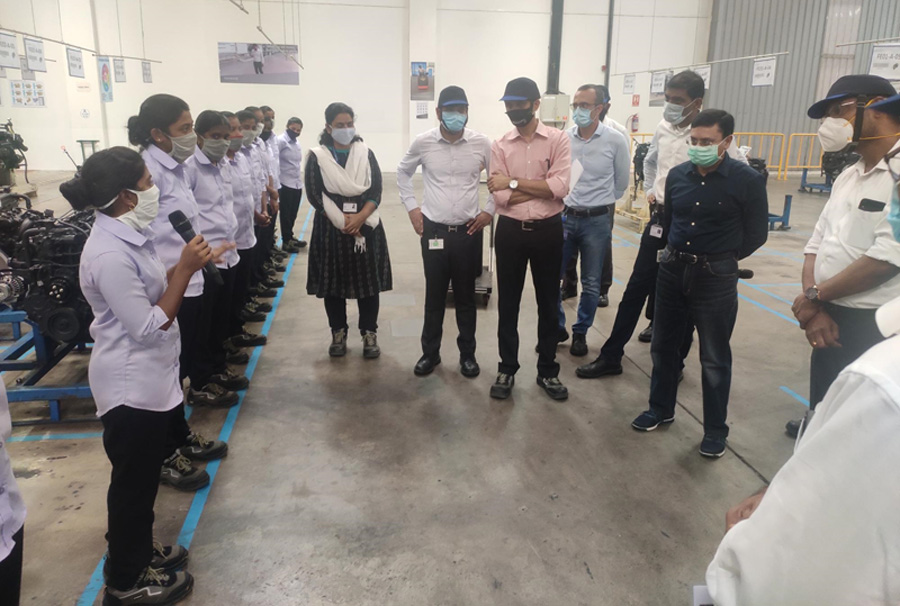Daimler India Commercial Vehicles (DICV) has announced the successful on-boarding of 46 women for shop floor operations at its manufacturing plant in Tamil Nadu. The move completes the first stage of its ‘DiveIN’ (Diversity & Inclusive) initiative to increase diversity for a more inclusive workforce. One goal of DiveIN is creating a gender-balanced staff base by increasing the ratio of female factory employees to 20% of the whole by 2022. The new employees have been deployed across key function areas on the shop floor including Engine & Transmission, Cab Trim, Quality Management, Cabin-in-White and Paint Shop.

Satyakam Arya, Managing Director and CEO, Daimler India Commercial Vehicles, said: “Diversity is critical to the long-term success of any organisation; How can you meet the expectations of a diverse market without a diverse workforce? At DICV, we’re promoting inclusivity by welcoming women to our factory with a supportive, professional working environment.”
To ensure the welfare and well-being of the new employees, DICV has implemented a comprehensive set of tangible and intangible changes at the factory. The company first installed suitable infrastructure and services such as specific restrooms and changing rooms, crèche facilities and dedicated medical professionals. It also reinforced existing workplace policies and measures including the speedy grievance redressal system, gender sensitization training, and the POSH (Prevention Of Sexual Harassment) committee.
Yeshwanth Kumar Kini, Head of HR, DICV, said: “Diversity and inclusion are some of our fundamental principles at DICV. To ensure new employees settle comfortably into their new roles, we provide a comprehensive on-boarding process including training on safety, health and hygiene, communication skills, firefighting and basic tool handling. We hope this initiative encourages more women to join a company that understands their value.”
Overall, the DiveIN initiative aims to ‘Inspire complete diversity both in terms of roles and engagement, thereby enhancing organisational culture’.